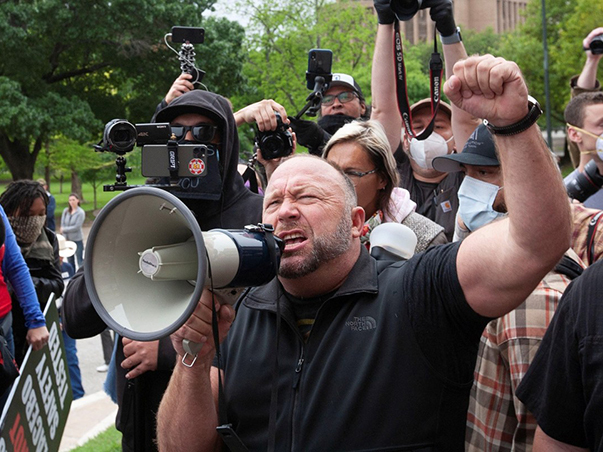 Monday, August 17 from 5–8 pm on KRCB TV in the North Bay. Judy Woodruff anchors live coverage of the 2020 Democratic National Convention.
Monday, August 17 from 5–8 pm on KRCB TV in the North Bay. Judy Woodruff anchors live coverage of the 2020 Democratic National Convention.
 Monday, August 17 at 8 pm on KPJK TV in the South Bay. Tells the story of Carrie Chapman Catt, the women's suffrage movement, and the passing and ratification of the 19th amendment. Catt, raised in Charles City, IA, devoted most of her life to the expansion of women's rights around the world and is recognized as one of the key leaders of the American women's suffrage movement.
Monday, August 17 at 8 pm on KPJK TV in the South Bay. Tells the story of Carrie Chapman Catt, the women's suffrage movement, and the passing and ratification of the 19th amendment. Catt, raised in Charles City, IA, devoted most of her life to the expansion of women's rights around the world and is recognized as one of the key leaders of the American women's suffrage movement.
 Thursday, August 13 at 9 pm on KRCB TV in the North Bay. How trafficking in conspiracy theories went from the fringes of US politics into the White House. The alliance of conspiracy entrepreneur Alex Jones, Trump advisor Roger Stone, and the president, and their role in the battle over truth and lies.
Thursday, August 13 at 9 pm on KRCB TV in the North Bay. How trafficking in conspiracy theories went from the fringes of US politics into the White House. The alliance of conspiracy entrepreneur Alex Jones, Trump advisor Roger Stone, and the president, and their role in the battle over truth and lies.
 Wednesday, August 5 at 8 pm on KPJK TV in the South Bay. NHK asked people to film their lives during the pandemic. They include health care workers on the front lines, an Italian opera singer, a small-town official in France's hardest-hit area, and a Manhattan bagel shop owner. In this collection of videos, we witness people trying to do their part, by protecting their loved ones, reaching out to their communities and forging a "new normal" as they learn to live with the novel coronavirus. As the world faces its greatest crisis in generations, their stories overlap with ours, offering examples of human compassion, resilience, and hope.
Wednesday, August 5 at 8 pm on KPJK TV in the South Bay. NHK asked people to film their lives during the pandemic. They include health care workers on the front lines, an Italian opera singer, a small-town official in France's hardest-hit area, and a Manhattan bagel shop owner. In this collection of videos, we witness people trying to do their part, by protecting their loved ones, reaching out to their communities and forging a "new normal" as they learn to live with the novel coronavirus. As the world faces its greatest crisis in generations, their stories overlap with ours, offering examples of human compassion, resilience, and hope.

 Live Radio
Live Radio